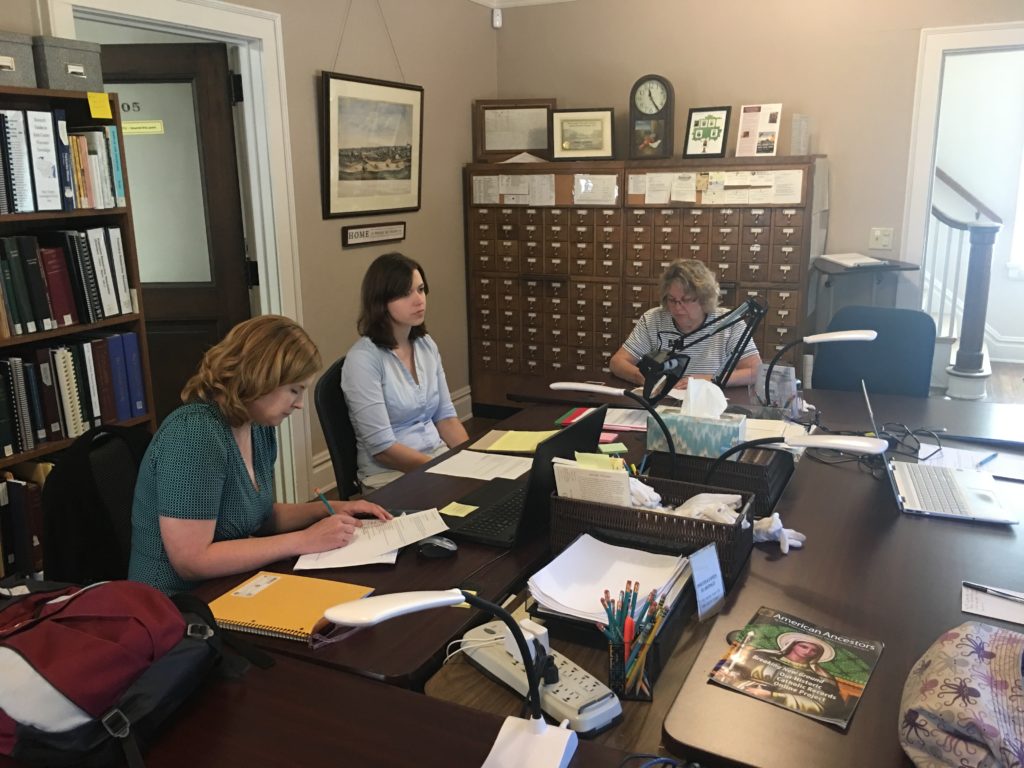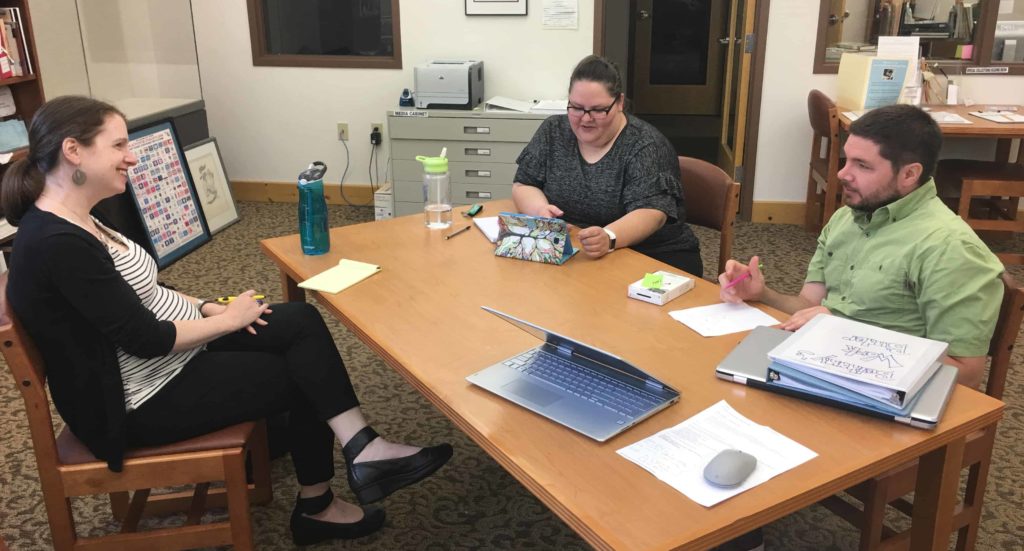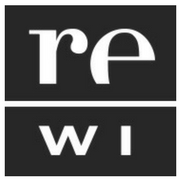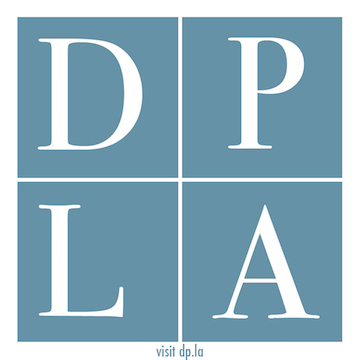Earlier this month, I wrapped up my “Tour de Year One CCDC Host Sites” with visits to Rock County Historical Society in Janesville, Outagamie Waupaca Library System in Appleton and College of Menominee Nation in Keshena. While all of our teams have similar broad goals for their summer projects — develop digital preservation workflows, best practices and policies — it’s been fascinating and inspiring to see how their focus and solutions vary depending on institutional mission and collection content.
Rock County Historical Society’s CCDC project focuses on born-digital audio files –- specifically, a new endeavor known as “Story Squad.” Over the past many months, an RCHS volunteer has been actively collecting audio recordings from local individuals, documenting various aspects of Janesville and Rock County community history. This collection has grown significantly and is now a popular feature on the RCHS web site. Beyond providing digital preservation strategies for existing Story Squad audio content, the RCHS team took the opportunity to strategize how best to evolve and grow Story Squad from a project to a more robust oral history program – including training in oral history best practices, audio and video file creation and management, audio equipment upgrades, and interview accessibility and permissions. I look forward to following this project and learning more about Rock County history and culture, as they continue to add stories.

Outagamie Waupaca Library System’s CCDC project is unique, as they are dealing with digitized content drawn from multiple member libraries. Our site visit discussion touched on several key topics including creating tools and workflows that can be easily shared with member libraries engaged in different stages of digital preservation work. Their solution for sharing new digital preservation best practices and policies with OWLS member libraries includes creating and maintaining a web site dedicated to digital preservation documentation on their intranet. We also discussed, in depth, common challenges when attempting to discuss digital preservation with different key stakeholders. While conversation goals may be the same, the language and focus required to successfully convey meaning may change, depending on the audience. Think about how your “pitch” may vary when talking to IT staff, your administration, community members, donors or content creators. Our friends at POWRR — Preserving digital Objects With Restricted Resources — created a collection of “one pagers” to help facilitate discussions with key groups.
These tip sheets are meant to illustrate for a specific audience why digital preservation should be important to them and how not doing something about the problem may affect them and their work area. They are an excellent starting point for modifying your digital preservation “pitch” for various audiences.

The College of Menominee Nation is hard at work creating a wealth of digital preservation-related documentation, including folder and file-naming conventions, an understanding of IT support and backup workflows and a review of scanner and software settings to follow the Federal Agencies Digital Guidelines Initiative, aka FADGI. ” . . . so much documentation, so little time . . .” should really be our CCDC new motto! This documentation — best practices, workflows and policies from all CCDC participants — will be publicly available on the Recollection Wisconsin web site later this year. Stay tuned!
The College of Menominee Nation College is also working with WiLS staff to explore the implementation of Mukurtu CMS, a free and open source community archive platform designed with the unique needs of indigenous communities, libraries, archives, and museums in mind.

What’s next for CCDC? This summer’s program will wrap up by mid-August. We have a few follow-up and assessment activities for all Year One participants including a capstone event in late August. Team members will reconvene in a virtual meeting to share project progress and discuss sustainability. In addition to finishing up remaining digital preservation work for their host sites, our six students will complete any academic requirements for their respective institutions including web-based coursework, a virtual poster presentation or a final paper. It goes without saying, but I’ll say it anyway, our CCDC students really knocked it out of the park this summer (obligatory sports euphemism). Well done, all, well done.
And, believe it or not, we’re already gearing up for next year’s program! We have capacity for ten students and host sites in 2019. If you’re interested in applying as a host site or know a UW-Madison iSchool or UW-Milwaukee SOIS graduate student who might be interested in this fieldwork experience, feel free to contact me directly at vicki@wils.org. Application materials will be available on the Recollection Wisconsin web site in late 2018.
— Posted by Vicki Tobias, CCDC Program Coordinator, WiLS
Curating Community Digital Collections is supported by a grant from the Institute of Museum and Library Services, #RE-85-17-0127-17.




You must be logged in to post a comment.